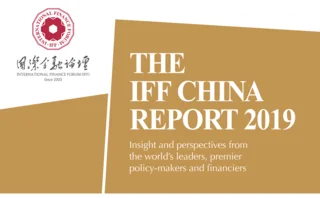
The need for a new multilateralism


Globalisation did not suddenly happen – it has deep roots in history, with the process of globalisation becoming a defining feature of international relations towards the end of the 19th century. Revolutionary progress in transportation and communications technology rendered national boundaries increasingly irrelevant for most economic, commercial and cultural purposes.
Globalisation has been driven not only by this rapid technological change, but also by drastic geopolitical and socio-economic shifts.

With the demise of the doctrine of economic control and planning, the free market principle and system have gradually become the unchallenged platform being adopted globally. In international trade and finance, the market economics principle calls for free trade and liberalised capital markets. Indeed, the idea of free trade and free movement of capital across national borders has become the norm of economic activity the world over.
The root of globalisation
The governing principle behind this new international order is, at root, non-ideological and market-friendly compared with the period prior to the collapse of the Soviet Union around 30 years ago. It is instructive to recall that the pre-World War I international order was also basically non-ideological. All the major players were capitalist; even imperial Russia was rapidly industrialising along capitalist lines. The global system was then, as now, ‘increasingly interdependent’, to use a hoary cliché.
The successful conclusion of multilateral trade negotiations under the General Agreement on Tariffs and Trade (GATT) and the 1989–94 Uruguay Round of GATT negotiations – which culminated in the creation of the World Trade Organization (WTO) – contributed to furthering the globalisation process. Compared with previous trade negotiations, the Uruguay Round was particularly significant to the process in developing countries. Until then, the multilateral trade negotiations had been the major concern only of developed countries.
It was through the Uruguay Round that developing countries were required to improve their trade-related institutions and policies. Although developing countries were disappointed at the outcome of the negotiations, it was during this period that they further lowered their tariffs on manufactured goods and became more disciplined in observing intellectual property rights in return for the abolition of quotas on textiles and clothing, and in subsidy policy for the agricultural sector and others on the part of developed countries.
Relevant to this point is the establishment and growth of international economic institutions such as the World Bank, the International Monetary Fund, the Organisation for Economic Co-operation and Development, and the WTO and GATT. Above all is the UN itself which, though broader in focus, is no less concerned with economic factors conducive to war and peace. Nearly all of these institutions came into being after World War II. They set the rules of international trade and finance, serve as forums for negotiation and co-operation, and broadly act to minimise the possibility of unchecked economic competition becoming dangerously out of hand.
Another major factor that expedited the globalisation process was the economic integration that began in Europe soon after World War II. The European Union and its predecessors have had a great impact on regional movement and integration. The European Economic Community that was established with the Treaty of Rome in 1957 has moved through the stage of being a customs union to an economic union, resulting in what is now the EU. Through the Maastricht Treaty of 1992, the sphere of integration that began with the economic area was broadened to include political and security areas. With the launch of the common currency – the euro – in 1999, European economic integration was further intensified. The successive harmonisation of various systems and policies in the EU has increasingly rendered inter-European borders redundant, contributing to the free flow of goods and services, capital and labour within Europe.
Managed expansion
Lessons learned from the European experience increasingly convinced other regions that the benefits of integration – economic or otherwise – were substantial. Indeed, many regional integration arrangements began to proliferate in Asia, the Americas and Africa, increasing the acceleration of the globalisation process.
To emulate the successful experience of European integration, the Association of Southeast Asian Nations was formed and has been active in integrating the regional economies and other sectors of its member states. The formation of free-trade areas such as Mercosur – the Southern Common Market in Latin America – in 1991 and the North American Free Trade Agreement in 1994 are other such examples.
In the Asia-Pacific region, the Asia-Pacific Economic Cooperation (APEC) is a prominent forum that contributes to the expansion of globalisation. As the Republic of Korea’s minister of trade and industry, I was one of the initiators of APEC in 1989. We wanted it to be an example of open regionalism. APEC was instrumental in mobilising members’ efforts to expedite the conclusion of the Uruguay Round. Although it was initially established as a very loose forum, it has since been widening its area of activities.
The rapid developments in information and communications technology have also propelled the progress of globalisation in recent years. The widespread use of the internet and other electronic means of communications, for example, has helped rapidly globalise capital markets. The digital revolution and its swift dispersal throughout major developed nations has helped to not only create a cyber space, but also condense the world into a village in all areas of human activities. The widespread use of smartphones is another significant cause of the rapid cross-border pollination of economic and social cultures, providing a link with a world beyond national borders.
A blessing and a curse
Globalisation, however, is a double-edged sword. While enhancing the wellbeing of mankind in general, the globalised world has posed serious challenges to nations as well as to individuals. Although economic globalisation is the most self-evident phenomenon that seems to bring about benefits to humankind, it is becoming increasingly clear that the distribution of the benefits from globalisation is not always equal within and among nations. There are also non-economic factors stemming from the globalisation process that overshadow the more beneficial aspects of globalisation.
The process of globalisation, as it influences the interaction among nations today, substantively affects the UN’s agenda. Many of the issues being discussed by the UN reflect such challenges. Minority groups, the aged and children are among those most seriously affected by the by-products of globalisation, and the issues of environmental protection, poverty eradication and HIV/Aids have long been on the UN’s agenda.
International terrorism has also surfaced as one of the crucial issues created by the process of globalisation that must be dealt with urgently through closer and tighter international co-operation. Indeed, the events in the US of September 11, 2001 are a perfect representation of the undesirable effects of globalisation. As evidenced in the case of 9/11, globalisation furnished international terrorism with easy access to loopholes in integrated systems. With terrorist organisations spread across national borders, national-level countermeasures became much less effective. It is also easy now for international terrorists to seek safe haven in failed states. Unless counterterrorist measures are conducted at a global level, it will be exceedingly difficult to combat international terrorism.
The digital revolution and its rapid diffusion throughout major developed nations has helped to not only create a cyberspace but also shrink the world into a village in all areas of human activities
Another typical area in which the negative aspect of globalisation is evident is information technology. Although it has expedited the globalisation process, deep divisions exist within and among nations caused by the development of this technology. Enormous regional disparities in the capacity to use these new technologies – the so-called ‘digital divide’ – continue to grow.
Essentially, globalisation is a synonym for efficiency. The real concern with globalisation is that it may not promote equity. At this critical juncture in world economic history, the beneficial impact of globalisation in recent years should not be discounted but, at the same time, the major concerns of underprivileged nations and individuals should be seriously taken into account if we are to rectify this situation.
Unfortunately, in recent years the unravelling of globalisation has become evident. Diverse trade barriers are being raised, and regional integration is undergoing a difficult period. Anti-globalisation is gaining greater support than ever before in major developed nations. For example, the UK’s decision in 2016 to withdraw from the EU – Brexit – has shaken the foundations of the EU. The WTO has not been properly functioning for many years, with embryonic free-trade agreements frozen before their birth.
The longer these deglobalisation processes last, the more harm they will bring and the greater negative impact they will have on global welfare. It is therefore time for world leaders to apply their wisdom and fortitude to reverse the course of world trade, which has been regressing for some years. Their calls for action would surely benefit people worldwide as well as those in their own countries.
However, it is not just trade that has been deglobalising. There are many areas of shared problems: climate change, declining biodiversity, lack of clean water, oceanic degradation, cyber crime, terrorism, large-scale migration, tax evasion, and many others.
Fortunately, there have been multilateral efforts in recent years to deal with some of these global problems. World leaders gathered at the UN in New York in September 2015 to unanimously adopt the new global agenda.
The agenda acknowledged that we are facing immense challenges to sustainable development and our very existence. Billions of people continue to live in poverty, inequalities within and among countries are increasing, enormous disparities of opportunity, gender inequality, unemployment, global health threats, more frequent and intense natural disasters, spiralling conflict, violent extremism and humanitarian crises threaten to reverse many of the development gains we have made in recent decades. Natural resource depletion and environmental degradation – including desertification, drought, land degradation, freshwater scarcity and loss of biodiversity – add to the challenge for sustainable development and urgently require a new kind of multilateralism.
In addition, climate change is one of the greatest challenges of our time, and its adverse impacts – such as global temperature and rising sea levels, ocean acidification and increasing volatility of weather patterns – are putting the planet’s ecological life support systems at risk. Fortunately, world leaders were gathered at the 21st Conference of the Parties of the UN Framework Convention on Climate Change in Paris in December 2015 to adopt the Paris Climate Agreement, the long-term goal of which is to limit the increase in global average temperature to well below 2°C compared with pre-industrial levels.
The new multilateralism will require the close co-operation of the global leaders, just as information and communication technology is rapidly making the world increasingly more interconnected in all fields of human activities.
Only users who have a paid subscription or are part of a corporate subscription are able to print or copy content.
To access these options, along with all other subscription benefits, please contact info@centralbanking.com or view our subscription options here: www.centralbanking.com/subscriptions
You are currently unable to print this content. Please contact info@centralbanking.com to find out more.
You are currently unable to copy this content. Please contact info@centralbanking.com to find out more.
Copyright Infopro Digital Limited. All rights reserved.
As outlined in our terms and conditions, https://www.infopro-digital.com/terms-and-conditions/subscriptions/ (point 2.4), printing is limited to a single copy.
If you would like to purchase additional rights please email info@centralbanking.com
Copyright Infopro Digital Limited. All rights reserved.
You may share this content using our article tools. As outlined in our terms and conditions, https://www.infopro-digital.com/terms-and-conditions/subscriptions/ (clause 2.4), an Authorised User may only make one copy of the materials for their own personal use. You must also comply with the restrictions in clause 2.5.
If you would like to purchase additional rights please email info@centralbanking.com







